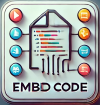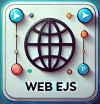Translations
| Code | Language | Translator | Run | |
|---|---|---|---|---|
 |
||||
Credits


 This email address is being protected from spambots. You need JavaScript enabled to view it.; Francisco Esquembre; Felix J. Garcia Clemente
This email address is being protected from spambots. You need JavaScript enabled to view it.; Francisco Esquembre; Felix J. Garcia Clemente
1. Overview and Core Functionality:
The primary source describes "Jack Pot Spin" as a "Jackpot Spin Game JavaScript HTML5 Applet Simulation Model." This indicates it is an interactive digital tool designed to simulate the mechanics of a jackpot spinning game. Being developed in JavaScript and HTML5 ensures its accessibility across various web browsers without the need for additional plugins.
The second source, from the Open Educational Resources / Open Source Physics @ Singapore website, provides further context. It lists "Jackpot Spin Game JavaScript HTML5 Applet Simulation Model" under the category of Mathematics and Games. This strongly suggests its primary purpose is educational, likely to engage learners with mathematical concepts through a gamified approach.
2. Authorship and Licensing:
The "Jack Pot Spin" code itself credits the following authors:
"This email address is being protected from spambots. You need JavaScript enabled to view it.; Francisco Esquembre; Felix J. Garcia Clemente © 2019, This email address is being protected from spambots. You need JavaScript enabled to view it.; Francisco Esquembre; Felix J. Garcia Clemente."
The license information in the first source states:
"Released under a license."
The second source elaborates on the licensing, mentioning:
"Contents are licensed Creative Commons Attribution-Share Alike 4.0 Singapore License . Separately, for commercial use of EasyJavaScriptSimulations Library, please read https://www.um.es/fem/EjsWiki/Main/EJSLicense and contact This email address is being protected from spambots. You need JavaScript enabled to view it. directly."
This clarifies that the content itself (likely including the simulation design and any accompanying materials) is openly licensed under Creative Commons, promoting sharing and adaptation for non-commercial purposes. However, the underlying "EasyJavaScriptSimulations Library" used to build the applet has a separate commercial license.
3. Context within Open Educational Resources @ Singapore:
The "Jack Pot Spin" simulation is hosted on the "Open Educational Resources / Open Source Physics @ Singapore" platform. This platform serves as a repository for various interactive resources, primarily focused on science and mathematics education. The inclusion of "Jack Pot Spin" highlights the platform's broader scope to include engaging mathematical games.
The breadcrumbs on the platform indicate its organizational structure: "Home > Interactive Resources > English Language > SLS Hackathon by Maria Stella Primary on Cloze Passage JavaScript Simulation Applet HTML5 > Jackpot Spin Game JavaScript HTML5 Applet Simulation Model." This unusual path suggests that the "Jack Pot Spin" might have originated from or been related to a SLS (Student Learning Space) Hackathon. While the specific connection to the Maria Stella Primary Cloze Passage applet is unclear from the provided text, it implies the simulation was likely developed within an educational technology development context, possibly involving teachers or students.
4. Embeddability and Accessibility:
The second source explicitly provides an embed code:
<iframe width="100%" height="100%" src="https://iwant2study.org/lookangejss/math/ejss_model_jackpotspin/jackpotspin_Simulation.xhtml " frameborder="0"></iframe>
This "Embed this model in a webpage" section underscores the intention for educators and developers to easily integrate the "Jack Pot Spin" simulation into their own websites or learning management systems. The use of an iframe makes this process straightforward.
5. Additional Information and Potential Learning Goals:
The second source includes sections for "Sample Learning Goals," "For Teachers," "Research," and "Video," although the actual content within these sections is "[texthttps://weelookang.blogspot.com/2019/09/jackpot-spin-game-javascript-html5.html - This link likely points to a blog post or page detailing the development or features of this specific version of the "Jack Pot Spin" game.
- Other Resources: https://www.geogebra.org/m/c5geysdm by Lew W.S. - This indicates a related resource on GeoGebra, another platform for mathematical tools and visualizations, suggesting potential connections or alternative approaches to similar concepts.
7. Context within the SLS Hackathon:
The extensive list of other projects from various schools (e.g., "SLS Hackathon by Team Overcooked on Vector Addition JavaScript HTML5 Applet Simulation Model," "SLS Hackathon by Yumin Primary on Catch the correct Heat Transfer Game") clearly positions "Jack Pot Spin" within the context of the SLS Hackathon. This initiative appears to encourage the development of interactive learning tools by educators and potentially students for use within Singapore's Student Learning Space. The diversity of topics covered in the hackathon projects highlights the broad interest in leveraging interactive simulations for educational purposes across different subjects and grade levels.
8. Popular Tags and Themes:
The "Popular Tags" section on the Open Educational Resources platform includes "Mathematics" (with the highest count of 18), indicating that a significant portion of the resources on the platform, including likely "Jack Pot Spin," falls under this subject area. The presence of "Games" as a category for "Jack Pot Spin" aligns with the platform's broader use of interactive and engaging tools for learning.
Key Takeaways:
- "Jack Pot Spin" is a JavaScript HTML5 applet simulation designed as a mathematical game.
- It was likely developed in the context of the SLS Hackathon, suggesting a focus on creating interactive educational resources for Singapore's Student Learning Space.
- The simulation is openly licensed under Creative Commons for non-commercial use, promoting its sharing and adaptation.
- It is embeddable in web pages, making it easily accessible for educators.
- The accompanying information (though not fully provided) suggests the existence of learning goals and resources for teachers to integrate the simulation into their lessons.
- The simulation is part of a larger collection of open educational resources focused on mathematics and science.
Further Actions:
- Access the linked blog post (https://weelookang.blogspot.com/2019/09/jackpot-spin-game-javascript-html5.html) to gather more specific details about the simulation's features and intended use.
- Explore the GeoGebra resource (https://www.geogebra.org/m/c5geysdm) to understand potential alternative approaches or related mathematical concepts.
- Investigate the SLS Hackathon initiative to gain further context on the development of educational applets within Singapore's education system.
- If access is available, review the "[text]" sections for "Sample Learning Goals," "For Teachers," and "Research" to understand the intended pedagogical applications of the "Jack Pot Spin" simulation.
Jackpot Spin Study Guide
Quiz
- What is the main subject of the "Jackpot Spin Game JavaScript HTML5 Applet Simulation Model"?
- Who are credited as the creators or contributors to the "Jackpot Spin" model?
- What does the inclusion of an <iframe> tag in the documentation suggest about how the "Jackpot Spin" model can be used?
- Under what license are the contents of the Open Educational Resources / Open Source Physics @ Singapore website licensed? What does this imply for users?
- The webpage lists numerous "SLS Hackathon" projects. What does "SLS" likely stand for in this context, given the other information provided?
- Besides "Jackpot Spin," name two other types of interactive simulations or games listed on the Open Educational Resources / Open Source Physics @ Singapore page.
- What is the primary programming language mentioned in relation to the "Jackpot Spin Game Applet Simulation Model"?
- Where can the actual runnable version of the "Jackpot Spin" model be accessed according to the provided text?
- What are some of the general subject areas, besides games, that are covered by the interactive resources listed on the Open Educational Resources / Open Source Physics @ Singapore page?
- What contact information is provided for inquiries related to the EasyJavaScriptSimulations Library for commercial use?
Quiz Answer Key
- The main subject is a JavaScript HTML5 applet simulation model of a jackpot spin game.
- The creators/contributors credited are This email address is being protected from spambots. You need JavaScript enabled to view it., Francisco Esquembre, and Felix J. Garcia Clemente.
- The <iframe> tag suggests that the "Jackpot Spin" model can be easily embedded into other webpages.
- The contents are licensed under a Creative Commons Attribution-Share Alike 4.0 Singapore License, meaning they can be shared and adapted for non-commercial purposes as long as attribution is given and any adaptations are shared under the same license.
- Given the context of educational resources in Singapore, "SLS" likely stands for Student Learning Space, a national e-learning platform in Singapore.
- Two other examples include the "Vector Addition JavaScript HTML5 Applet Simulation Model" and the "Sentence Scrambler for English Chinese and Tamil Game."
- The primary programming language mentioned is JavaScript, used to create the HTML5 applet simulation model.
- The runnable version of the "Jackpot Spin" model can be accessed via the provided <iframe> link: https://iwant2study.org/lookangejss/math/ejss_model_jackpotspin/jackpotspin_Simulation.xhtml.
- Besides games, the resources cover subjects such as mathematics, physics (including mechanics, electromagnetism, and thermodynamics), chemistry, and potentially other science and technology topics.
- For commercial use of the EasyJavaScriptSimulations Library, one should contact This email address is being protected from spambots. You need JavaScript enabled to view it. directly, after reading the license at https://www.um.es/fem/EjsWiki/Main/EJSLicense.
Essay Format Questions
- Discuss the potential educational applications of a "Jackpot Spin Game JavaScript HTML5 Applet Simulation Model" in a learning environment. Consider the learning goals and target audience.
- Based on the provided list of resources, analyze the scope and variety of interactive simulations offered by Open Educational Resources / Open Source Physics @ Singapore. What general trends or focuses can you identify?
- Explore the significance of using open educational resources and open-source physics models in education. What are the potential benefits and challenges associated with this approach, as suggested by the provided texts?
- Considering the technical details mentioned (JavaScript, HTML5, Applet Simulation Model, Embed), discuss the advantages of using such technologies for creating and sharing interactive educational tools.
- Reflect on the collaborative nature of the projects listed under "SLS Hackathon" and the credited authors for "Jackpot Spin." How does collaboration contribute to the development and dissemination of educational resources?
Glossary of Key Terms
- HTML5: The latest evolution of the standard that defines the structure of web pages. It includes features for multimedia without the need for plugins.
- JavaScript: A high-level, often just-in-time compiled, multi-paradigm programming language that conforms to the ECMAScript specification. It is widely used as a client-side scripting language for websites, adding interactivity and dynamic content.
- Applet Simulation Model: A self-contained program (applet) designed to imitate a real-world system or process (simulation) for educational or exploratory purposes. In this context, it's built using JavaScript and HTML5.
- Open Educational Resources (OER): Teaching, learning, and research materials that are in the public domain or released with an open license that permits no-cost access, use, adaptation, and redistribution by others with no or limited restrictions.
- Open Source Physics (OSP): A community focused on creating and disseminating open-source computational tools and resources for physics education.
- Embed: To integrate content, such as an interactive simulation, from one webpage or resource into another, often using technologies like <iframe>.
- License (Creative Commons Attribution-Share Alike 4.0 Singapore License): A legal framework that specifies how a creative work can be used, shared, and adapted. "Attribution" requires giving credit to the original author, and "Share Alike" mandates that any adaptations must be released under the same or a compatible license.
- SLS Hackathon: A collaborative event, likely within the Singapore Student Learning Space (SLS) initiative, where teams develop innovative educational resources, such as interactive simulations and games.
- Simulation: The process of creating a model of a real-world system to understand its behavior, often used for educational purposes to allow interactive exploration.
- Interactive Resource: A digital learning material that allows users to actively engage with the content, often through simulations, games, or other forms of manipulation and feedback.
Sample Learning Goals
[text]
For Teachers
[text]
Research
[text]
Video
[text]
Version:
Other Resources
https://www.geogebra.org/m/c5geysdm by Lew W.S.
Frequently Asked Questions about Jack Pot Spin
1. What is Jack Pot Spin?
Jack Pot Spin is described as a "Jackpot Spin Game JavaScript HTML5 Applet Simulation Model". It is an interactive, digital simulation designed to function within a web browser using JavaScript and HTML5 technologies. The title suggests it simulates a game involving spinning to potentially win a "jackpot".
2. Who created Jack Pot Spin and under what license is it released?
Jack Pot Spin is credited to This email address is being protected from spambots. You need JavaScript enabled to view it., Francisco Esquembre, and Felix J. Garcia Clemente. It was released in 2019 under a license, although the specific details of the license are not fully provided in the excerpts, other than being mentioned as a "license".
3. Where can I access and embed the Jack Pot Spin simulation?
The simulation can be accessed and run through the provided iframe embed code: <iframe width="100%" height="100%" src="https://iwant2study.org/lookangejss/math/ejss_model_jackpotspin/jackpotspin_Simulation.xhtml " frameborder="0"></iframe>. This code allows users to embed the interactive model directly into a webpage.
4. What subject area does Jack Pot Spin primarily relate to?
The simulation is categorized under "Mathematics" on the Open Educational Resources / Open Source Physics @ Singapore website, suggesting its primary application is within a mathematical context, likely involving probability, chance, or related concepts that are often explored through games of chance.
5. Where can I find more information or other resources related to Jack Pot Spin?
The provided text lists a version link: https://weelookang.blogspot.com/2019/09/jackpot-spin-game-javascript-html5.html. Additionally, it mentions another related resource: https://www.geogebra.org/m/c5geysdm by Lew W.S. These links likely offer further details, explanations, or alternative implementations related to the Jack Pot Spin concept.
6. Is Jack Pot Spin part of a larger project or initiative?
Yes, Jack Pot Spin appears to be part of the "Open Educational Resources / Open Source Physics @ Singapore" project. It is also listed within a section related to "SLS Hackathon" projects, specifically mentioning "SLS Hackathon by Maria Stella Primary on Cloze Passage JavaScript Simulation Applet HTML5" in the breadcrumbs. This suggests it may have originated from or been inspired by a hackathon event focused on creating educational simulations for Singapore's Student Learning Space (SLS).
7. Are there any indicated learning goals or teacher resources associated with Jack Pot Spin?
The excerpt mentions "[text]" under "Sample Learning Goals" and "For Teachers," indicating that specific learning objectives and resources for educators likely exist but are not detailed within this text. These resources would typically provide guidance on how to use the simulation in an educational setting.
8. Besides Jack Pot Spin, what other types of interactive simulations are available from the same source?
The extensive list following the "end faq" marker showcases a wide variety of other JavaScript HTML5 applet simulation models available from Open Educational Resources / Open Source Physics @ Singapore. These simulations cover diverse topics including mathematics (e.g., vector addition, geometry, algebra), physics (e.g., kinematics, electromagnetism, waves), chemistry, economics, and even games for language learning and other subjects. This highlights the breadth of educational resources offered by this project.
- Details
- Written by Loo Kang Wee
- Parent Category: Interactive Resources
- Category: Mathematics
- Hits: 5963


.png
)





